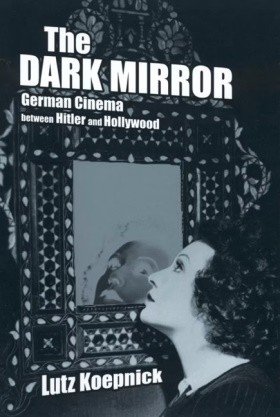18. Richard Wagner, Twilight of the Gods. Götterdämmerung, trans. Andrew Porter (London: Calder, 1985), 124.
19. Russell A. Berman, The Rise of the Modern German Novel: Crisis and Charisma (Cambridge, Mass.: Harvard University Press, 1986).
20. Richard Wagner, Die Musikdramen (Munich: Deutscher Taschenbuch Verlag, 1978), 383. The English translation that follows in the text is from Andrew Porter, trans., Tristan and Isolde, by Richard Wagner (London: Calder, 1981), 91–92.
21. Wagner, Die Musikdramen, 384; translation is from Porter, Tristan and Isolde, 92.
22. Friedrich Nietzsche, The Birth of Tragedy and the Case of Wagner, trans.
Walter Kaufmann (New York: Vintage, 1967), 155.
23. Leslie A. Adelson, Making Bodies, Making History: Feminism and German Identity (Lincoln: University of Nebraska Press, 1993), 22.
24. Michel Ciment, ed., Kazan on Kazan (New York: Viking, 1974), 122 –
123; qtd. in David Bordwell, On the History of Film Style (Cambridge, Mass.: Harvard University Press, 1997), 239.
25. Bordwell, History of Film Style, 239.
26. Kiersch, Curtis Bernhardt, 169.
27. Grob, “Interrupted Melody,” 215.
28. Herbert Lindenberger, Opera: The Extravagant Art (Ithaca, N.Y.: Cornell University Press, 1984), 17.
29. Deniz Göktürk, Künstler, Cowboys, Ingenieure . . . Kultur- und mediengeschichtliche Studien zu deutschen Amerika-Texten, 1912 –1920 (Munich: Fink, 1998), 11–16.
30. Belton, Widescreen Cinema, 187.
31. Michel de Certeau, The Practice of Everyday Life, trans. Steven Rendall (Berkeley: University of California Press, 1984), 165–177.
32. Gerhard Schulze, Die Erlebnisgesellschaft: Kultursoziologie der Gegenwart (Frankfurt /M.: Campus, 1992).
33. Theodor W. Adorno, “Prolog zum Fernsehen,” in Eingriffe: Neun kri-tische Modelle (Frankfurt /M.: Suhrkamp, 1963), 69 – 80.
34. Edgar Reitz, Bilder in Bewegung: Essays. Gespräche zum Kino (Reinbek: Rowohlt, 1995), 135.
35. Leslie Fiedler, “Cross the Border— Close the Gap,” in The Collected Essays of Leslie Fiedler (New York: Stein and Day, 1971), 2:468.
36. Jim Collins, Architectures of Excess: Cultural Life in the Information Age (New York: Routledge, 1995), 25 (Collins’s italics).
37. Volker Schlöndorff, “Vorwort,” in Felix Moeller, Der Filmminister: Goebbels und der Film im Dritten Reich (Berlin: Henschel, 1998), 11.
38. Robert Müller, “Der Roman des Amerikanismus,” Saturn 3, no. 9 (September 1913): 253 –258; qtd. in Göktürk, Künstler, Cowboys, Ingenieure, 211.
39. “Unterbrochene Melodie,” Katholischer Film-Dienst, March 1, 1956.
10-C2205-END 8/17/02 3:39 PM Page 306
306
/
Notes to Pages 256 –264
40. Edmund Luft, “Lebenswille: ‘Unterbrochene Melodie,’” Filmblätter, November 11, 1955.
41. Fr., “‘Unterbrochene Melodie,’” Evangelischer Film-Beobachter, November 17, 1955.
42. Ibid.
43. Wolfgang Staudte, “Eine Antwort: Auf die Frage, Deutscher Film—
wohin?” Staudte, ed. Eva Orbanz and Hans Helmut Prinzler (Berlin: Spiess, 1991), 158; qtd. in Heide Fehrenbach, Cinema in Democratizing Germany: Reconstructing National Identity after Hitler (Chapel Hill: University of North Carolina Press, 1995), 209.
44. On the history and mission of German film clubs during the 1950s see Fehrenbach, Cinema in Democratizing Germany, 169 –210.
45. Volker Baer, “Unbekanntes Emigrationskino,” Der Tagesspiegel, February 14, 1982.
46. Angelika Bammer, introduction to Displacements: Cultural Identities in Question, ed. Angelika Bammer (Bloomington: Indiana University Press, 1994), xi–xx.
47. Fredric Jameson, “Modernism and Imperialism,” in Nationalism, Colonialism, and Literature, ed. Terry Eagleton, Fredric Jameson, and Edward Said (Minneapolis: University of Minnesota Press, 1990), 43 – 66.
48. Salman Rushdie, Imaginary Homelands: Essays and Criticism, 1981–
1991 (New York: Viking, 1991), 13; qtd. in Bammer, Displacements, xii.
49. John E. Davidson, Deterritorializing the New German Cinema (Minneapolis: University of Minnesota Press, 1999), 52.

























